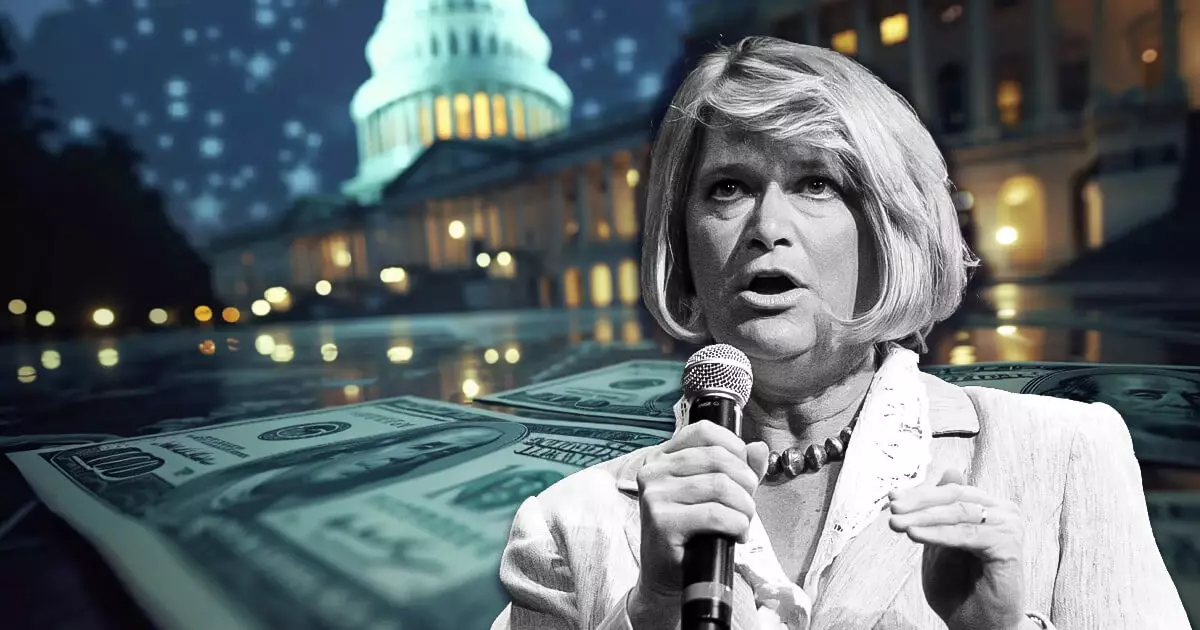In a recent interview on CNBC’s Squawk Box, Wyoming Senator Cynthia Lummis speculated that Gary Gensler, the Chair of the U.S. Securities and Exchange Commission (SEC), may vacate his post in the upcoming year. Her comments were prompted by discussions regarding Gensler’s apparent enthusiasm for his current role. However, Lummis, with a discerning eye on the political landscape, cautioned against complacency, suggesting that Gensler’s tenure could be cut short, particularly if Donald Trump were to reclaim the presidency. This assertion reflects Lummis’s broader concerns about crypto regulation and governance in light of political shifts.
Senator Lummis also criticized Gensler’s approach to Bitcoin and Ethereum, suggesting that he fails to recognize these assets as commodities adequately. She argued that a clear framework is vital for further defining what constitutes a commodity in the crypto space. The lack of definitive clarity, according to Lummis, stifles innovation and creates ambiguity for market participants. She pointed to the Howey Test as a foundational tool in this discussion, emphasizing its importance for evaluating various assets, not just the flagship cryptocurrencies.
Moreover, Lummis hinted that there may be other cryptocurrencies that deserve the same consideration as Bitcoin and Ethereum. The absence of clarity on these classifications can lead to regulatory chaos as financial institutions and crypto companies navigate the murky waters of compliance.
Lummis underscored an important observation regarding how effectively the European Union has been shaping its regulatory approach to crypto assets since 2023. She believes the United States should not allow other nations to eclipse its financial technologies. By showcasing the EU’s success in creating a conducive environment for crypto, Lummis indicates that the U.S. must adopt a proactive regulatory stance. The urgency for American lawmakers to implement similar regulations could influence global market dynamics and establish the U.S. as a leader in the cryptocurrency ecosystem.
While discussing regulation, Lummis pointed out the SEC’s current strategy of governing through enforcement actions rather than through clear guidelines. This method, she indicated, has led to numerous court cases, leaving industry participants in a state of confusion about compliance. The time has come for Congress to step in and craft well-defined regulations that can foster positive growth within the cryptocurrency sector, enhancing clarity for both users and providers.
Lummis’ comments highlight a crucial fact: while there’s an ongoing fight against fraud within the crypto sphere, regulators should differentiate between rogue operators and legitimate cryptocurrency ventures. It’s essential for regulatory actions to focus on preventing fraud without casting a shadow over the entire industry, allowing it to thrive within a well-defined regulatory framework.
Senator Lummis’s insights bring light to the pressing need for a comprehensive regulatory framework in the United States, especially concerning cryptocurrencies. Her arguments contend that failing to address these regulatory gaps not only risks stifling innovation but also places American entities at a disadvantage in the evolving global financial landscape. The dialogue surrounding crypto regulation is more important than ever, with a clear path laying ahead for both lawmakers and industry participants alike.














